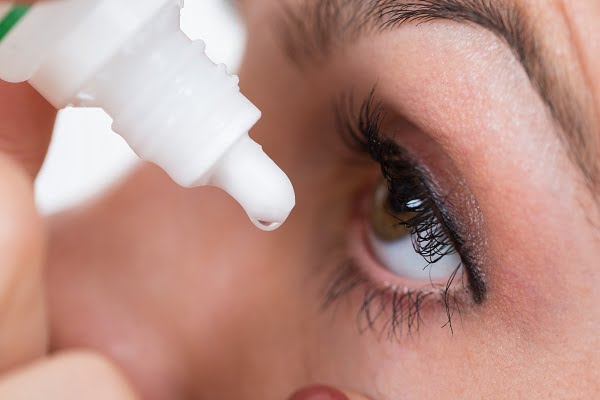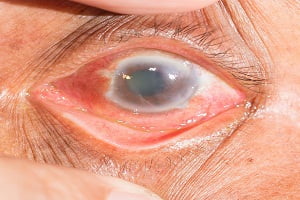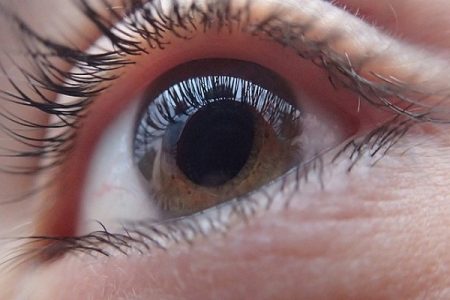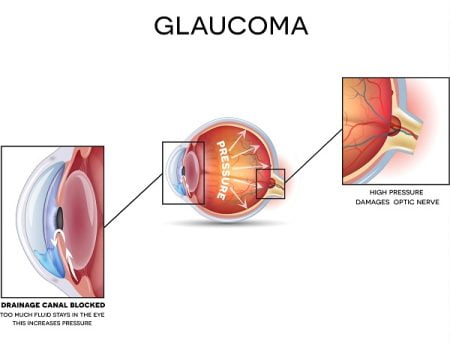What Is the Treatment for Glaucoma?
- Updated on: Jul 29, 2024
- 5 min Read
- Published on Apr 15, 2021

Glaucoma is a group of eye disorder caused due to damage to the optic nerve fiber. This damage is caused due to increased eye pressure and also due to poor regulation of blood flow to the optic nerve.
Glaucoma leads to slow and progressive damage of the optic nerve and loss of peripheral and central vision, ultimately causing blindness, if not treated on time. Glaucoma once progress causes other eye problems and complications which adds on to worsening of the disease. Read about causes of glaucoma.
Treatment of glaucoma
Although the complete cure of glaucoma is not possible, it can be controlled by early treatment. The treatment basically depends upon the type of glaucoma and severity of the disease. Regular eye check-up is necessary for any type of glaucoma to prevent vision loss and detect the disease progression.
The main goal of glaucoma treatment is to lower or control intraocular pressure to avoid vision loss.
The treatment starts with eye drops to lower or control eye pressure and excess release of the fluid or to allow proper drainage of the fluid out of eyes. Some medications are also used for high intraocular pressure.
At advanced stages, laser treatment and surgeries are considered as better options to treat glaucoma.
Generally, the treatment is classified into two main broad categories for treating any type of glaucoma:
- Medication – Generally includes eye drops and pills
- Surgery – Second level treatment option after medication to treat advanced stage of disease where medication is not so effective
Medications for the treatment of glaucoma
Most of the treatment for glaucoma aims at lowering the intraocular pressure that damages the optic nerve.
Medication is considered as first treatment option for any type of glaucoma and includes eye drops or pills or a combination of both. These eye drops prove effective in controlling and lowering the intraocular pressure to prevent damage to the eye.
Eye drops work in dual way in controlling or lowering the intraocular pressure or excess production of aqueous humor and also in helping in smooth outflow of the fluid from eyes.
There are some side effects of these medicines which might require your doctor to change the prescription in case you experience them. Some of the side effects of eye drops include:
- Stinging sensation or itching in the eyes
- Redness of eye or skin around the eye
- Blurred vision
- Change in eye color
- Drying of mouth
- Change in breathing pattern
- Energy level changes
- Heart beat and pulse rate changes
- Irritation in the eyes
Pills too have some side effects. These may include:
- Drowsiness
- Nausea and vomiting
- Tingling sensation in fingers and toes
- Loss of appetite
- Bowel problem- irregularity in bowel
- Anemia and other bleeding disorders
There are various categories of formulation for eye drops or medications which are available to treat glaucoma. These medications are given solo or in combination with other medication to treat glaucoma depending upon the nature and severity of the disease, current medication and any past history of eye injury, and family history of glaucoma etc.
The various categories of medications are provided below.
Beta-blockers
These are also known as Beta-adrenergic antagonists. They block adrenalin like substances. These drugs treat glaucoma by decreasing the production of aqueous humor thus lowering the eye pressure. This is prescribed as an adjunct or in combination with prostaglandins.
Some examples with generic and brand names of these medicines include:
- Timolol (Timoptic XE Ocumeter® and Timoptic®)
- Carteolol (Ocupress®)
- Metipranolol (OptiPranolol®)
- Levobunolol (Betagan®)
- Betatoxol (Betoptic®)
Alpha Adrenergic Agonists
These drops act like adrenaline. They work by both reducing the production of aqueous humor and increasing its drainage or outflow from the eyes. As a side effect, allergic reactions occur.
Some of the examples with generic and brand names of these medicines are:
- Apraclonidine (Iopidine®)
- Epinepherine (Gluacon® and Epifrin®)
- Brimonidine (Alphagan®)
- Dipivefrin (Propine®)
Prostaglandins
These drugs are often used as eye drops. These medicines generally provide the best response or compliance because they are required to use once in a day.
The prostaglandins work by increasing the outflow of the aqueous humor from the eyes. These drugs replaced beta-blockers because of lesser side effects. But they too have some side effects such as:
- Change in color of iris
- Thickening and darkening of eyelashes
- More likely to cause redness of eye than any other class of eye drops
- Inflammation of the eye in some patients
Examples of Food and Drug Administration (FDA) approved prostaglandins include:
- Xalatan (Pfizer)
- Lumigan (Allergan)
- Rescula (Novartis)
- Travatan Z (Alcon)
Carbonic Anhydrase Inhibitors
These are used as eye drops or as pills to reduce the production of fluid in the eyes by partially inhibiting enzymes responsible for aqueous humor production. These drugs lower intraocular pressure to approximately 15-20 %.
These are used two to three times a day. These drugs are rarely taken to remove fluid from the body including from eyes. When taken as eye drops, the side effect include:
- Loss of appetite
- Change in taste of mouth
- Stinging sensation in lips, eyes, and legs
When administered as pill and taken orally, the side effects include:
- Change in taste of mouth
- Depression
- Stomach disorder
- Weight loss
- Long term use causes kidney stone and anemia
- Fatigue
- Nausea and vomiting
Examples of these medicines used as eye drops include:
- Trusopt (Merck)
- Dorzolamide (Trusopt®)
- Brinzolamide (Azopt®)
- Diamox (Sigma),
- Neptazane (Wyeth-Ayerst)
- Daranide
Oral form of these drugs includes examples such as:
- Acetazolamide (Diamox®)
- Methazolamide (Neptazane®)
Parasympathomimetic agents
These drugs are also called as miotics. They are cholinergic agents which cause constriction in the pupil and increase the fluid flow out from the eyes.
The side effects of these drugs include:
- Increase the risk of retinal detachment
- Blurred vision
- Contraction of pupil makes pupil small
- Eye irritation
- Lung congestion and change in heartbeat
The FDA-approved drugs with generic and brand names include:
- Pilocarpine (IsoptoCarpine®, Pilocar®)
- Echothiophate (Phospholine Iodide®)
Surgeries for the treatment of glaucoma
Surgeries are mostly recommended in the advanced stages of the disease when medications are not so effective and do not help in slowing down the disease progression.
Immediate surgery at the advanced level, when complications due to the disease increases, helps in saving vision and relieve the patient.
Surgeries that are used to treat glaucoma are:
Laser therapy or surgery
Doctors recommend laser therapy or laser treatment to slightly increase the flow of fluid from the eye to cure and treat open angle glaucoma and stop fluid blockage in people with angle closure glaucoma.
The main types of procedures for laser therapy as done based on type of glaucoma and earlier medical history during glaucoma are discussed here briefly.
Trabeculoplasty
This therapy opens drainage area for the proper drainage of fluid from eyes. It is not a cure to glaucoma and is used in cases where patients are using multiple medications for glaucoma or their medications dosage needs to be increased.
Iridotomy
In this method, a small hole is made in the iris to allow flow of the fluid from the eyes more freely in patients with a narrow or closed drainage angle of the eye.
Cyclophotocoagulation
It is done to decrease the fluid production in the eyes by treating middle layer of the eye.
Microsurgery
Microsurgery is done in case where trabeculectomy (procedure in which a new channel is created to drain the fluid out from the eye and decrease eye pressure) fails.
In this surgery, a tube may be implanted by doctors to help drain fluid easily out from the eyes. But this surgery is risky and may cause temporary or permanent loss of vision, infection or bleeding in the eyes.












